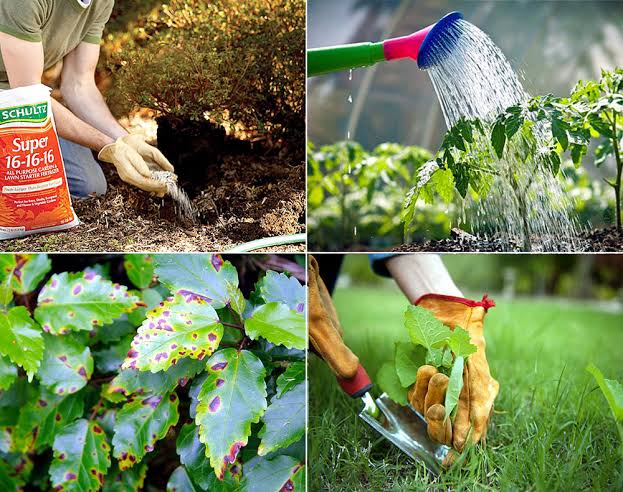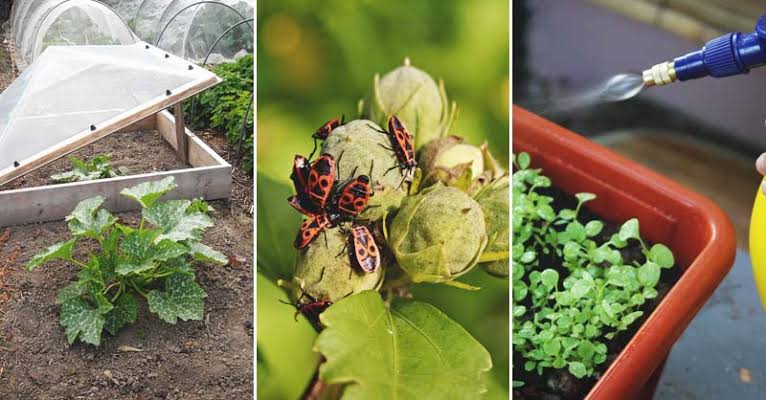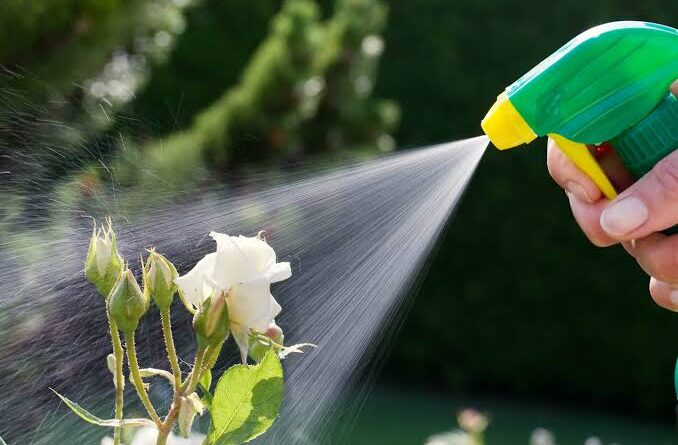How to Protect Your Plants From Pests and Diseases
Protecting Your Plants From Pests and Diseases is crucial to ensure their health and growth. When we talk about pests, we mean tiny insects or animals that can harm your plants. Diseases, on the other hand, are sicknesses that can affect your plants, making them weak and unwell.
Imagine if you had a garden full of beautiful flowers or tasty vegetables. If pests or diseases come, they can damage or even destroy your plants. This is why protecting them is like giving them a shield to stay strong and happy.
Pests, like little invaders, can eat away at your plants. They might be so small that you can’t see them easily, but they can cause big problems. They can nibble on leaves, stems, or even the roots of your plants. It’s like having tiny guests that you didn’t invite, and they are not polite – they eat your plants without asking!
Diseases are like plant sicknesses. Just like we catch a cold or fever, plants can catch diseases that make them feel unwell. These diseases can spread from one plant to another, like a cough or sneeze spreading among people. When your plants are sick, they can’t grow well, and their colors might fade.
Now, let’s talk about how to be the superhero for your plants. One way is by keeping a close eye on them. Check the leaves, stems, and roots regularly, like how you check yourself in the mirror every day. If you see anything unusual – like holes in the leaves or spots that shouldn’t be there – it’s a sign that pests or diseases might be around.
Watering your plants is also important. Just like you need a drink when you’re thirsty, your plants need water. But, be careful not to give them too much water. Too much can create a cozy home for diseases. It’s like finding a comfy spot for them to live and make your plants sick.
Another superhero move is to give your plants good food. Plants need nutrients, like how you need your daily meals. Choose the right plant food – it’s like serving them a healthy and tasty dinner. When your plants have the right nutrients, they become stronger and more resistant to pests and diseases.
If you find some pests or diseases, don’t panic! There are friendly helpers, like insect friends or special sprays, that can chase away the invaders. It’s like calling for backup when things get tough. By taking these steps, you become the guardian of your plants, ensuring they stay happy and healthy in their green home.
Read Also: How to Raise Newly Hatched Baby Chicks
How to Protect Your Plants From Pests and Diseases

Protecting Your Plants From Pests and Diseases is like being a garden guardian. Just as you protect yourself from getting sick, your plants need some care too. Here’s how you can shield your green friends:
1. Regular Health Checks: Just like you visit the doctor for a checkup, inspect your plants often. Look for any signs of trouble – holes in leaves, strange spots, or anything out of the ordinary. Early detection helps you act quickly.
2. Proper Watering: Plants, like us, need water. But don’t drown them! Overwatering can invite diseases. Water your plants when the soil is dry, and make sure excess water can drain away. It’s like giving them a refreshing drink without flooding their home.
3. Nutrient-Rich Meals: Feed your plants with the right food. Plants thrive on nutrients in the soil. Choose a balanced fertilizer, like a tasty meal for them. This helps them grow strong and build resistance against pests and diseases.
4. Good Company: Introduce beneficial insects to your garden. Ladybugs, for example, are like nature’s pest control. They feast on harmful insects, keeping your plants safe. It’s like inviting helpful friends to your garden party.
5. Neat and Tidy Surroundings: A clean environment is like a healthy lifestyle for your plants. Remove fallen leaves and debris regularly. Pests and diseases like to hide in messy places, so keeping things tidy helps keep them away.
6. Quarantine Measures: If you buy new plants, keep them in isolation for a while. It’s like a quarantine for plants. This helps prevent any hidden pests or diseases from spreading to your existing green family.
7. Natural Repellents: Some plants don’t like certain smells. Use natural repellents like garlic or neem oil. It’s like creating a protective perfume for your plants that pests find unpleasant.
8. Pruning TLC: Trim and prune your plants regularly. It’s like giving them a haircut. This not only keeps them looking tidy but also removes infected parts, preventing diseases from spreading.
9. Knowledge is Power: Learn about the specific needs of each plant in your garden. Knowing your plants’ preferences is like understanding their language. You can provide the right care, and they’ll be less susceptible to pests and diseases.
10. Swift Action: If you spot trouble, don’t delay. Act swiftly. Remove affected parts, use natural remedies, or seek advice. It’s like treating a small cut before it turns into a big problem.
By following these steps, you become a plant protector, ensuring your garden stays vibrant and free from unwanted pests and diseases. It’s like creating a safe and happy haven for your green companions.
Read Also: Layers Mash Feed Formula Complete Guide
Benefits of Protecting Your Plants From Pests and Diseases

Protecting Your Plants From Pests and Diseases comes with a bouquet of benefits for both you and your green companions:
1. Lush and Vibrant Garden: By safeguarding your plants, you ensure they remain healthy and vibrant. A well-protected garden is like a colorful masterpiece, bringing joy and beauty to your surroundings.
2. Increased Yield: Healthy plants are more productive. Shielding them from pests and diseases means a bountiful harvest of flowers, fruits, or vegetables. It’s like reaping the rewards of your garden efforts.
3. Cost Savings: Preventing pest infestations and diseases early on saves you money. It’s like avoiding a trip to the plant doctor because your green friends are thriving without needing extensive care.
4. Environmental Harmony: Embracing natural pest control methods and avoiding harmful chemicals is like being a friend to the environment. You contribute to a healthier ecosystem, creating a balanced and sustainable garden.
5. Gardening Enjoyment: A well-protected garden is a joy to care for. It’s like having a peaceful retreat where you can relax and enjoy the beauty of nature without the worry of plant troubles.
6. Educational Opportunities: Learning about plants, pests, and diseases is like opening a book of knowledge. It enriches your understanding of the natural world, turning gardening into a fascinating learning experience.
7. Positive Aesthetics: Pests and diseases can make your garden look sad. Protecting your plants ensures they stay visually appealing. It’s like maintaining a positive and inviting outdoor space for yourself and others.
8. Enhanced Plant Resilience: Plants that are well-protected develop resilience. They can withstand environmental challenges better, whether it’s extreme weather or potential threats. It’s like giving them a superhero suit for survival.
9. Eco-Friendly Approach: Opting for natural and organic methods to protect your plants is like being an eco-warrior. You reduce the impact of harmful chemicals on the environment, creating a more sustainable and eco-friendly garden.
10. Connection with Nature: Taking care of your plants and protecting them is like fostering a deeper connection with nature. It brings a sense of fulfillment and a reminder of the wonders of the natural world right in your backyard.
In essence, protecting your plants from pests and diseases is not just about safeguarding your garden but fostering a harmonious relationship with nature and reaping the rewards of a flourishing and resilient green space.
Read Also: Exploring the Different Types of Medical Waste Disposal Companies









